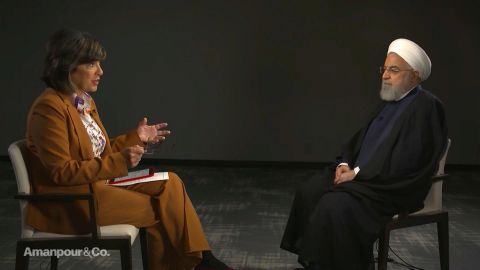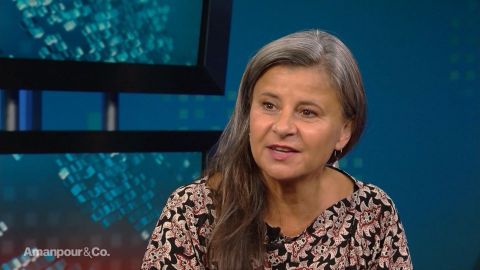Read Transcript EXPAND
CHRISTIANE AMANPOUR: You have a very public role of trying to save the JCPOA, otherwise known as the Iran nuclear deal. This time last year, you told me at the United Nations that the entire international community and as Europeans, we will make sure this deal stays and it sticks. How are you feeling about that today?
FEDERICA MOGHERINI, E.U. HIGH REPRESENTATIVE FOR FOREIGN AFFAIRS: Well, so far, I cannot say so good. But so far, it is holding. Iran is still complying with its nuclear related commitments. The IAEA just came out with another report, the 12th report, saying Iran is complying with its commitments. And we are putting in place measures that are making sure that Iran can continue to benefit from the economic relations it has with — legitimate economic relations it has with the rest of the world.
AMANPOUR: Well, that is the point, isn’t it? Because President Trump not only pulled the United States out but has put secondary sanctions on you all, on Europeans and others who do business with Iran. And the president of Iran has said, “That we only give the Europeans and the signatories a certain amount of time to make sure that this deal still benefits us. Otherwise, we pull out. Already, their oil is plummeting and they are going to have major sanctions come early November. Boeing has pulled out, German firms have pulled out, all the major benefits, as you say, that were due to go to Iran seem to be fraying very, very seriously at the edges. So, what can you actually do?
MOGHERINI: We are putting in place mechanisms together with the Europeans but also with the Russians, with the Chinese, with others in the world, from all over the world, to create the channels to keep trade with Iran that would guarantee that trades can continue regardless of the secondary sanctions that the United States have put.
AMANPOUR: So, that means avoid paying the Iran Central Bank or whatever or the government and figure out all sorts of mechanisms around?
MOGHERINI: We are working the technical details. Member states are working the technical details. But yes, we’re putting in place mechanisms to guarantee that trade can continue.
AMANPOUR: OK. You have a huge amount of faith in your power to somehow convince European business and others that they won’t be hurt by U.S. secondary sanctions. That’s the bottom line, isn’t it right? People actually think their business lies with the United States if there’s a competition between the United States and Iran.
MOGHERINI: I’m not saying it’s easy. And the confidence I have has a limit because it is indeed a difficult environment in which we’re operating. But I’m convinced of the value of what we’ve done and I’m convinced because I see the results. And what I’m saying is that the United States cannot think of imposing its own policy decisions on sovereign countries and organizations. So, the Europeans have the legitimate right to decide with whom to do business and trade. And this is what we are doing. Not only the Europeans but also the rest of the world.
About This Episode EXPAND
Christiane Amanpour interviews Hassan Rouhani, the Iranian President; Federica Mogherini, High Representative of the EU for Foreign Affairs and Security Policy/VP of the EU Commission; and Jacinda Ardern, New Zealand Prime Minister. Hari Sreenivasan interviews comedian Tracey Ullman.
LEARN MORE



